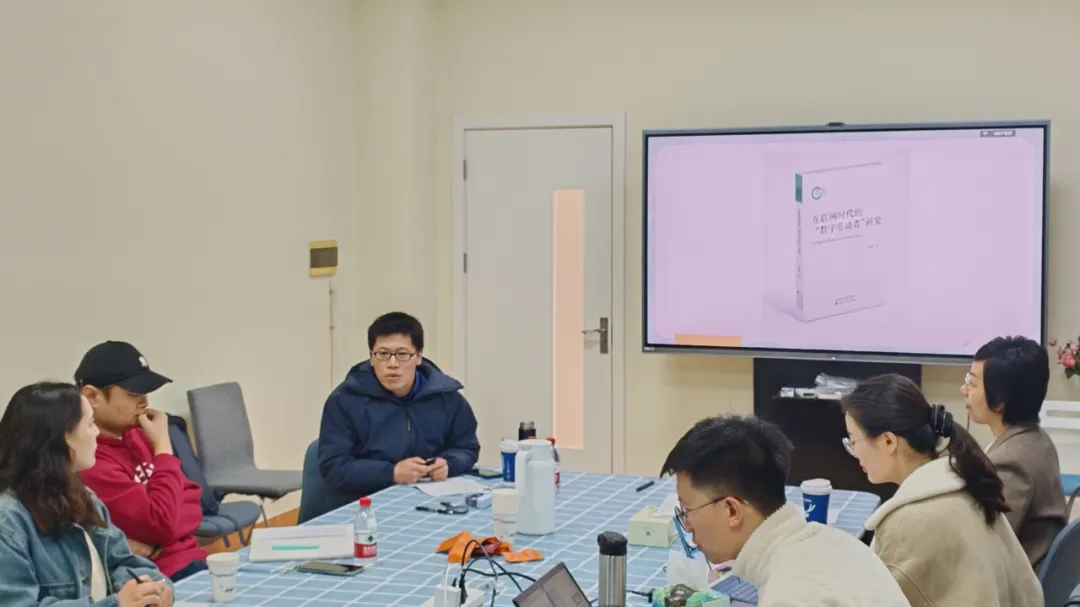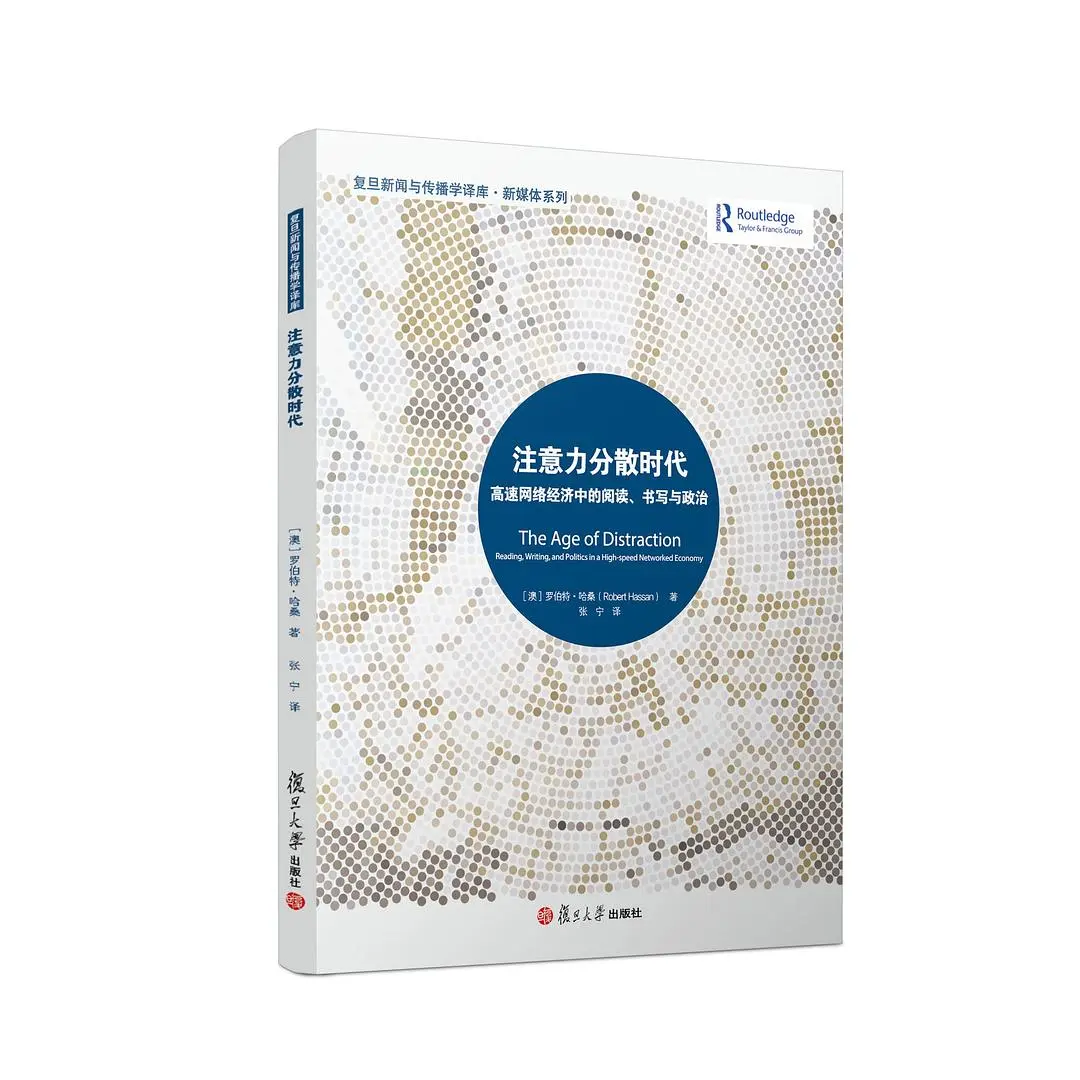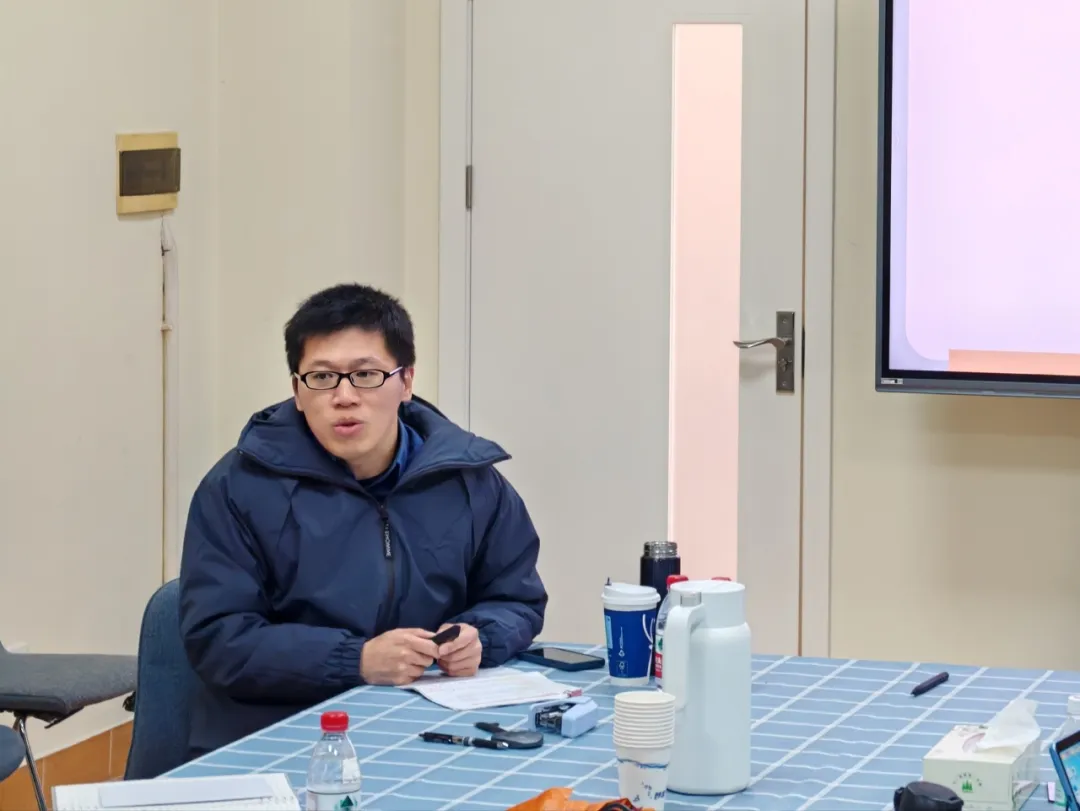


By Wang Yuan
Translated by Guo Yishun
On the morning of April 1st, Professor Wu Dingming from the School of Communication at Fujian Normal University delivered a thought-provoking lecture titled “The Imagination of Communication Studies: A Case Study on Media Time Research” at School of Journalism of Communication of Shanghai International Studies University. The event was hosted by Dean Wu Ying of SJC and attracted a wide audience of students and faculty.
Professor Wu began by reflecting on his decade-long journey in digital labor research, which eventually led him to explore the concept of “media time.” As the field of digital labor research reached certain limits, he found media time to be a promising new area for academic inquiry—especially in today’s digital age where discussions around time are becoming increasingly complex and diverse.
Drawing on key theoretical works such as Social Acceleration: A New Theory of Modernity, The Age of Distraction: Reading, Writing, and Politics in a High-speed Networked Economy, and The Scent of Time, Professor Wu emphasized how our understanding of time is being reshaped by technology and media. He introduced several perspectives on time, including Newtonian time in physics, social time from Norbert Elias, labor time in Marxist theory, and time as ideology in cultural traditions like Protestantism and Confucianism.
In the context of communication studies, he cited major thinkers such as Harold Innis, Marshall McLuhan, Paul Virilio, Manuel Castells, and Byung-Chul Han—each offering different lenses to understand how media transforms our sense of time.
Professor Wu also connected theory to real-life examples, such as how food delivery algorithms compress time, how apps like DingTalk use features like “read receipts” to micro-manage attention, and how the Pomodoro Technique and digital nomadism reflect new strategies of time use. He stressed the importance of developing “middle-range theories” that bridge academic research with everyday experiences, aiming to spark social reflection and dialogue.
During the Q&A, Professor Gao Kai raised insightful points on the emotional effects of constant connectivity—such as the guilt linked to unread messages—and discussed how to overcome limitations in research access.
In her closing remarks, Professor Wu Ying highlighted that time is not just a topic for theory, but a key to understanding broader social changes. She encouraged more students and scholars to engage in media time research and help shape the future of communication studies.


 |Hongkou Campus|550 Dalian Road (W), Shanghai 200083, China |Songjiang Campus|1550 Wenxiang Road, Shanghai 201620, China
|Hongkou Campus|550 Dalian Road (W), Shanghai 200083, China |Songjiang Campus|1550 Wenxiang Road, Shanghai 201620, China